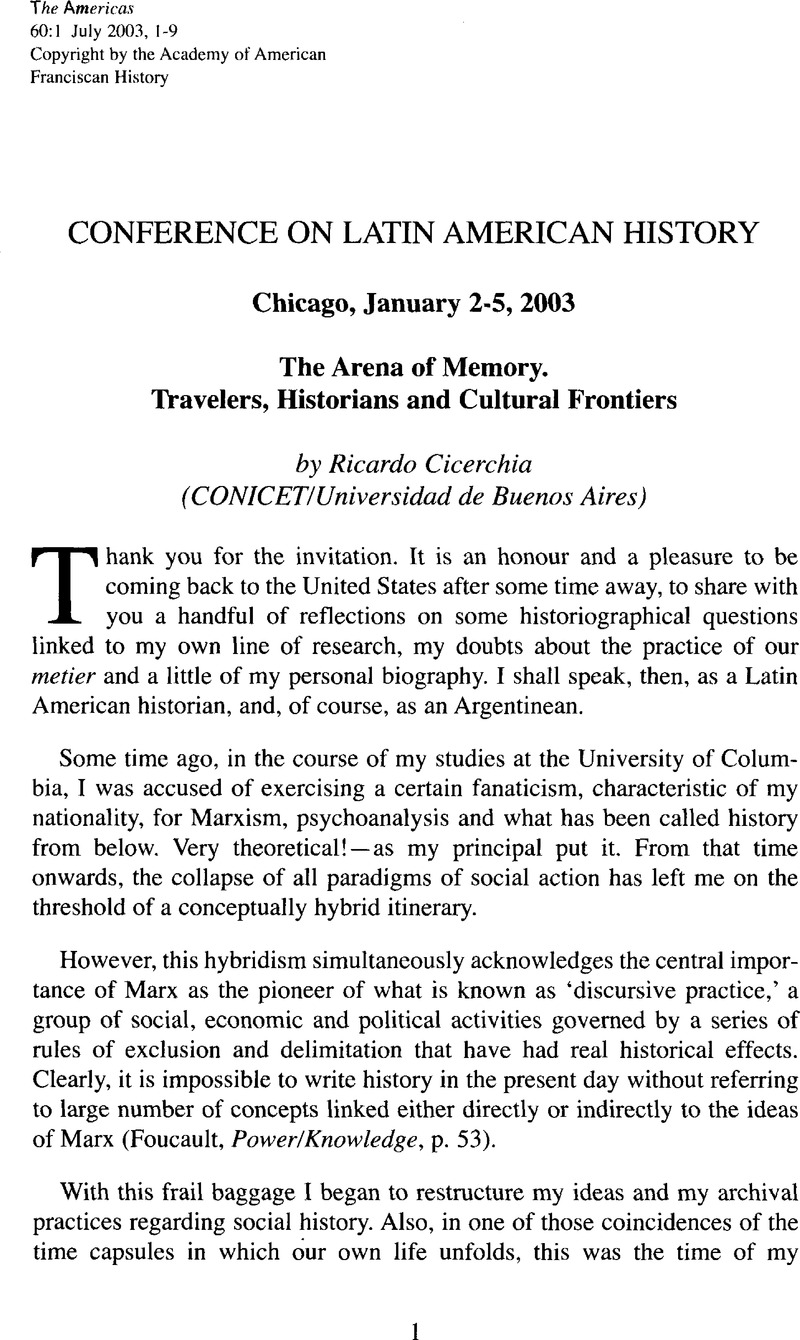No CrossRef data available.
Article contents
Conference on Latin American History: Chicago, January 2-5, 2003: The Arena of Memory. Travelers, Historians and Cultural Frontiers
Published online by Cambridge University Press: 11 December 2015
Abstract

- Type
- Other
- Information
- Copyright
- Copyright © Academy of American Franciscan History 2003
References
1 Sarmiento, Domingo Faustino, Viajes en Europa, Africa y Asia (Santiago, Imprenta de Julio Belim, 1849)Google Scholar. This was the first edition of his collected letters compiled and edited in Santiago de Chile. David Viñas locates Sarmiento's travel account within the Balzacian school and defines his narrative as ‘selfish utilitarianism’. See Viñas, David Literatura argentina y política (Buenos Aires, Editorial Sudamericana, 1995): p. 30 and passim.Google Scholar
2 Sarmiento moves away from the strictures of the literary conventions of the genre, indicating a lasting preference for aesthetic-moral effusion. See Prieto, Adolfo, Los viajeros ingleses y la emergencia de la literatura argentina, 1820–1850 (Buenos Aires, Editorial Sudamericana, 1996): p 177 Google Scholar. On the political nature of this essay as a continuation of Facundo, pressing for a modern Europeanised nation, see Shumway, Nicolás, La invención de la Argenina. Historia de una idea (Buenos Aires, Emecé, [1991} 1993), pp. 154 and ss.Google Scholar
3 His time in Chile in 1840 and 1852 was the most prolific in terms of literary production. There he wrote and published the aforementioned Facundo (1845), De la educación popular (1848), Recuerdos de provincia (1850), Argirópolis ( 1850) and Campaña en el Ejército Grande (1852).




